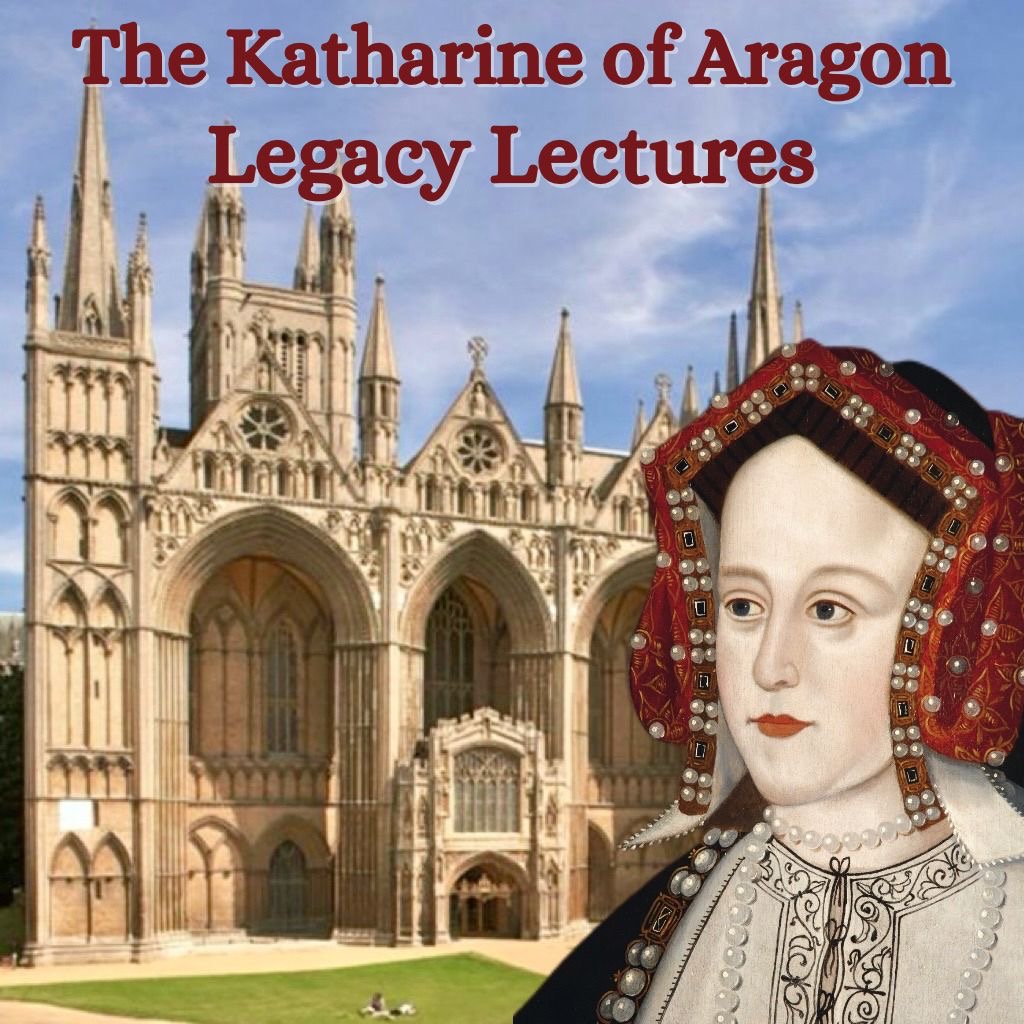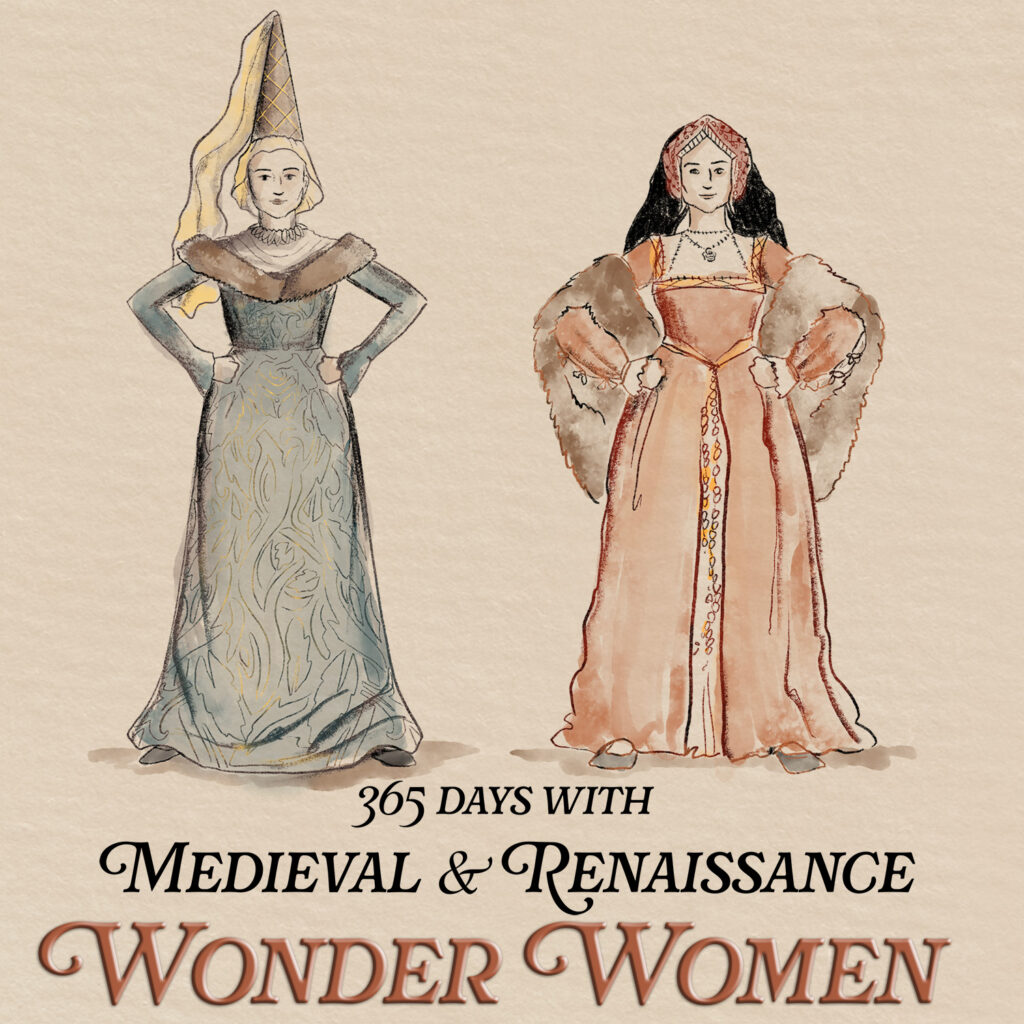Welcome to On the Tudor Trail Lauren! Could you share with us a little about yourself and your background?
Thank you for having me! I am an historian based in Sydney, Australia and am currently completing my PhD on the Boleyn men with the University of Newcastle, Australia. I originally focused on ancient Egypt, but during my Masters of History I wanted to further my research on the Tudor period.
 Tell us about your debut book, ‘Inside the Tudor Court: Henry VIII and his Six Wives through the writings of the Spanish Ambassador Eustace Chapuys.’
Tell us about your debut book, ‘Inside the Tudor Court: Henry VIII and his Six Wives through the writings of the Spanish Ambassador Eustace Chapuys.’
I remember first stumbling across the name, Eustace Chapuys, when I was 13. His reports brought the entire period to life, and I spent years searching for a biography of this intriguing Savoyard. Having found nothing particularly satisfying, I embarked on several years of research to restore him from a mere name at the bottom of the page, to an intelligent, passionate individual. The book focuses on his life, his insight into Henry and his wives, and the relationships which shaped his character.
What was it about Chapuys that made you want to tell his story?
He is one of our most important narratives of the period, and no scholar can write about the Tudors without his letters. I wanted to know him on an individual level, beyond Chapuys the ambassador. I wanted to come to grips with Eustace.
What is a common misconception people have about Chapuys?
There are so many! He was not Spanish. Charles V was also Charles I of Spain, so Chapuys has come to be known as the Spanish ambassador. However, he was known during the period as the imperial ambassador. Chapuys was born in Annecy, originally part of Savoy. Annecy is now a French town, sitting near the foot of the Swiss Alps. He was not bent on Anne Boleyn’s destruction, nor have his reports heavily influenced the negative views of her character. She comes across as human: insecure, feisty, impatient, jealous (which she herself admitted) but ultimately a well-rounded personality. But perhaps the most erroneous view is that Chapuys always got it wrong. Accused of having no English, believing whatever was told to him, and lying to Charles, his reputation has taken a serious hit. None these accusations have merit. Chapuys’ native language was French. He became impeccably fluent in Latin in the few years of university in Turin. He also learned Italian during these brief years. After a short time at Charles’ court in Spain, he was able to speak and write fluent Spanish, and conversed often with Katherine of Aragon in her native language. He would later correspond in effortlessly graceful Spanish with Phillip of Spain. Yet scholars argue that this clearly linguistically gifted man was unable to comprehend any English. I also note that the ambassador’s duty was to provide Charles with accurate information. It was easy to be caught out in a lie, and when Chapuys did report rumours and gossip, he distanced himself from it, advising Charles not to read too much into it, but stating that he felt the need to report it. Chapuys had an impressive network, allowing him to keep up to date, and we owe a great deal to his meticulous reports.
What is something most people don’t know about Chapuys?
I enjoyed reading of his obsession with a lovely cheese from Geneva, which he instructed anyone who would listen to try, and attempted to have it imported to England. He also had a love of Italian furniture and tapestries, and boasted an impressive library, full of humanist works and classics.
Tell us about the process you followed when researching your book.
Chapuys took me everywhere. I began in the Haus-Hof und Staatsarchiv in Vienna, which was once the Hapsburg capital. There one can view over a decade of letters and reports, and it was an incredible moment, holding his letters in my hands. Brussels also houses 18th century transcripts, which were necessary to see, as some of the originals are lost in Vienna. From there I travelled to his home town, Annecy, where the archives house his personal papers. With this wealth of information, I pieced together his life, and mapped out his diplomatic career.
What was the most challenging part of the writing process?
Wading through his extensive correspondence! It was a matter of reading the original side by side with the transcripts, and working out what had been changed or omitted. His letters can be very hard to untangle, as he can be a most disorganized correspondent. He often wrote in margins, having run out of paper, and stops mid way through a sentence to change the subject, but returns to the first subject two pages later.
What is the most interesting or peculiar fact you’ve learnt about the Tudors in your research?
Apparently the Duke of Norfolk sucked his teeth when he was in a good mood. I don’t know why Chapuys felt the need to write about it, but it was certainly an interesting observation. He enjoyed poking fun at Henry in his letters, and had a talent for conveying acerbic and hilarious sketches of Henry and his councilors.
What other periods of history interest you?
I have always had a passion for ancient Egypt, but I have also studied ancient Greece, as well as Norse history.
What is one of your favourite Chapuys moments or quotes?
Again, there are so many! He made fun of Henry’s musicianship in 1536. While cruising on the Thames, past the Tower where Anne and the condemned men awaited their fate, Chapuys reported that Henry had pulled out a small book, which he said was a tragedy he had written himself. The book apparently predicted how his marriage to Anne would end, but Chapuys bitingly reported that the tragedy was really the horrible set of ballads Henry had written. Another fascinating and comical letter recounts a scene during a feast, in which a simple altercation with Norfolk results in the latter thumping his fist on the table, sending food flying, roaring across the table at a young courtier who is trying to agree with Chapuys on the issue, Brandon yelling something silly further down the table in English, but not satisfied with the reception of his joke, yells again, this time in French. Cromwell is embarrassed by the raucous behaviour and Chapuys tries to extricate himself from the whole situation. The entire debacle is conveyed with Chapuys’ trademark caustic wit and humour, and it is a pleasure to read.




















This sounds a very interesting book to read about a man who was at Henry’s court for many years, and saw many changes there.
So many historians say that most of what Chapuys reported is to be ‘taken with a pinch of salt’, a gossip, and always delighted in when things went bad with the ‘concubine’ as he always called Anne,so is it right to think that this concept is far from the truth Lauren?
Can’t wait to read this one, and see Chapuys in a different light perhaps.
This biography aims to present Chapuys for a new generation. I dispel many of the myths surrounding his relationship with Anne (including the myth that he only ever referred to her as the Concubine) as well as his linguistic skills and diplomatic integrity.
Thank you, I will look forward to reading this book, for a couple of reasons firstly because I don’t know much about him as a person other than he was the Spanish Ambassador and all the suppositions that have grown around him, and secondly I love seeing these ‘myths’ stripped away from these character’s in history, as with Anne….